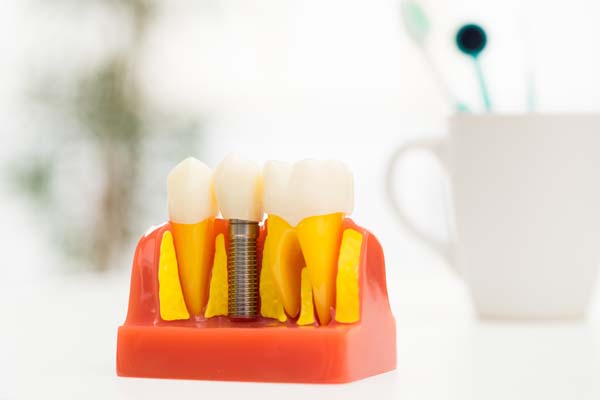4 Aftercare Tips for Implant Crowns

Implant crowns are a long-term solution to tooth loss that are easy to care for, but the process of receiving the new and beautiful replacement teeth is not always pleasant. To make the aftercare process following the placement procedure go as smoothly as possible, it is helpful to learn some aftercare tips from a dental professional.
4 Ways to care for your new implant crowns
Properly caring for implants after placement is essential to minimizing the risk of oral infection and keeping any discomfort that exists at a tolerable level until a full recovery is made. The following are four effective tips on how to care for your oral health after the placement of the implants.
1. Keep your mouth clean
Perhaps the most important care tip following implant crown placement is to keep the mouth as clean as possible. There is likely to be a fair amount of swelling and discomfort that exists, and there may even be some minor bleeding as well. Patients can keep the discomfort from becoming intolerable and prevent oral health complications such as an infection from developing by keeping the mouth clean through a good daily oral care routine. The routine should include brushing several times a day and using mouthwash as directed by the dental professional.
2. Eat a soft diet and drink water
One of the biggest changes to prepare for after implant placement is the patient’s diet. Many foods will be off-limits for the first few weeks, and it is important to keep chewing at a minimal level. To do so, stick primarily to soft foods such as oatmeal, yogurt, scrambled eggs and soup. It is also helpful to drink water throughout each day to wash away any excess bacteria that develop in the mouth.
3. Check for complications
It is also important to check for any signs of complications during the recovery process and to notify your dental professional if any issues develop to ensure the problem does not worsen or linger for longer than what is necessary. Signs to check for include excessive swelling, moderate to severe bleeding, an intolerable amount of pain and a dental implant that feels loose. While moderate discomfort and other symptoms are to be expected, anything severe might be a sign of a more serious issue such as an implant failure or an oral infection.
4. Make all scheduled dental visits
Your dental professional overseeing the implant crowns treatment process is likely to schedule follow-up visits to ensure the recovery process goes smoothly and that there are not any complications that the patient could not detect. It is essential to make all scheduled visits as some might be necessary for a full and speedy recovery. The longer an issue exists, the more serious it is likely to become, and dental professionals can quickly spot and fix any issues.
Find out more about implant crowns
Get in touch with our office today to learn more about implant crown treatment and to schedule an initial consultation visit. We help our patients through the entire process, including the aftercare process following implant placement.
Are you considering implant crowns in the Griffin area? Get more information at https://addevalefamilydentistry.com or call us at (770) 430-3087.
Check out what others are saying about our dental services on Yelp: Implant Dentist in Griffin, GA.
Related Posts
Partial dentures should fit comfortably, but there may be times when they need a slight adjustment. This can occur for a variety of reasons, such as the shifting of natural teeth or periodontal changes. The dentist can check on the fit and comfort of the partial dentures with every check-up visit and make adjustments when…
A dental crown is a common restoration that provides essential protection and structural support for damaged or weakened teeth. Over time, even the most durable dental crown can experience wear, misalignment, or develop issues that compromise your oral function and health. Here are five signs that indicate it is time to replace or refit a…
General dentists recommend adding flossing to your oral hygiene routine once a day. This important practice removes plaque and food debris that brushing alone cannot reach. While string floss is an effective way to clean between your teeth, several alternative methods can make the cleaning process more comfortable and efficient.Flossing is an essential part of…
Dentures restore chewing power and an aesthetically pleasing smile, but the right food choices help everything feel natural. During the first few days, soft textures build comfort while you can learn new habits. With simple techniques and smart options, eating with dentures becomes easy and enjoyable. Here are some examples of what denture wearers can…
